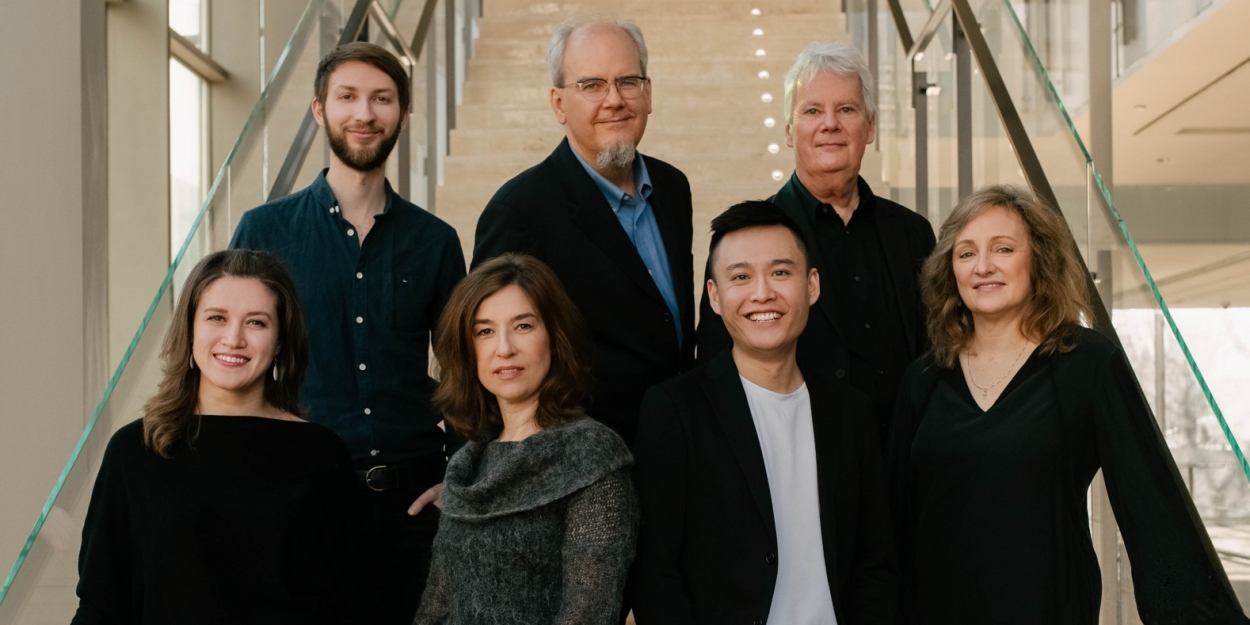ARC Ensemble to Celebrate 20 Years Reviving the Musical Legacy of War and Anti Semitism
The ARC Ensemble’s mission reminds us of how easily lives and careers can be devastated by political and social oppression.

Over the span of two decades, the ARC Ensemble (Artists of The Royal Conservatory) has provided a voice for exiled musicians, the many composers who had graduated from Europe’s finest conservatories and enjoyed successful careers, but were then forced into exile by anti-Semitism and bigotry. The works of many of these composers have been forgotten. As it marks its 20th anniversary, the ARC Ensemble remains dedicated to the research, recovery and recording of the music produced by these extraordinarily gifted exiles.
Comprised of the senior faculty of The Royal Conservatory's acclaimed Glenn Gould School, with guests drawn from its accomplished alumni and students, the ARC Ensemble has become an influential cultural ambassador, earning admirers both nationally and abroad. Its concerts and recordings are eagerly received and have garnered enthusiastic reviews and multiple Grammy and JUNO nominations. ARC has released nine recordings (on RCA Red Seal and more recently on Chandos Records), including six in its illuminating Music in Exile series. Through its quest to uncover neglected and forgotten 20th century composers, a roster of deserving works is now entering the classical canon.
“The international reputation of the ensemble has spread through its artistic skill as well as the quality of the repertoire and its work with renowned musicians. But above all, there is the joy of discovery.”
Werner Theurich, Der Spiegel.
From its inception, the goal of ARC Ensemble’s Artistic Director, Simon Wynberg, was to both engage the creative energy of Conservatory’s talented musicians, and to find a unique direction and purpose, one that would set them apart, generate attention and open opportunities to promote The Royal Conservatory, Canada’s largest national arts organization.
“I knew it would be difficult to compete with the hundreds of recordings of canonical works and familiar programs,” Wynberg says. “Luckily, I’ve always been drawn to the unfamiliar and I’m always curious as to why some works are endlessly performed, while others are consigned to an eternal hibernation. I love the idea of having an audience experience new music—especially music that enjoyed success in its own time—in the knowledge that we are embarking on an utterly new journey.”
The group’s first major success was its Music Reborn series which featured composers who had been killed during the Holocaust. A few years later, Wynberg programmed a weekend dedicated to the works of émigré composers like Erich Korngold and Miklós Rózsa, musicians who had fled Europe during the 1930s and found sanctuary in America and the U.K.
As he examined the exile experience more deeply, Wynberg very soon concluded that “dozens of composers of the period still remained unresearched, unassessed and ignored.” The ARC Ensemble had found its raison d’être and the Music in Exile series was born. The candidates for performance and recording are drawn primarily from the post-1933 period, when National Socialism forced artists to flee Europe and find refuge wherever they might be allowed. After the war, composers whose careers had been diminished by exile, then saw their music dismissed by their younger avant-garde colleagues as reactionary and largely irrelevant.
Wynberg’s musical detective work might begin with a footnote in a biography, an old concert program, an email from a composer’s relative, or a suggestion from the network of musicologists active in the area of suppressed music “Fortunately, many scores have survived and are hiding in plain sight in large library collections and archives,” he says. Wynberg tracks down potential treasures scattered across the globe, from Israel to India, from Austria to Argentina, and resources closer-to-home in Bloomington, Indiana, and Winnipeg, Canada.
In resurrecting music forgotten in the boxes of library archives, the ARC Ensemble has created renewed appreciation for a growing list of gifted composers: for example, the Ukrainian nationalist Dmitri Klebanov, who was suppressed under Stalin; the Sephardic composer and musicologist Alberto Hemsi, who fled Turkey and Egypt to settle in Paris, and Walter Kaufmann, who found sanctuary in Bombay and created a uniquely personal language by fusing Indian and Western traditions. As a direct result of ARC’s research and recording, Kaufmann’s works are now published by the legendary Viennese publisher Doblinger, and both European and American orchestras are now programming his works. Kaufmann’s Indian Symphony will be reintroduced to an audience at Carnegie Hall on November 7, 2023. ARC’s Music in Exile series continues with a recording of premieres by Robert Müller-Hartmann who fled Hamburg with his wife in 1937 and settled in England. The release is scheduled for November, 2023.
Every one of the exiled composers that ARC has introduced has both a compelling story of flight and exile, and a body of music of extraordinary range and quality. “It is hugely exciting to uncover a piece that quickens the pulse the first time you hear it,” says Wynberg, “But the process is also rather nerve-racking as we are always asking audiences to trust our choices in travelling these unexplored paths.”
Wynberg acknowledges that while the canonic repertoire is secure, he is confident that the new platforms for distribution and the explosion of social media, will encourage listeners to leap into the unknown. “When ARC performed a Klebanov String Quartet for NPR’s Tiny Desk”, Wynberg reports, “I watched in disbelief as the number of views exploded. The YouTube channel alone quickly exceeded 50,000…Videos like these do suggest that there is a parallel audience for classical music that is quite separate from that of the traditional concert-goer.”
Twenty years on, with an alarming rise in anti-Semitism and new waves of cultural repression, the ARC Ensemble’s mission reminds us of how easily lives and careers can be devastated by political and social oppression. Says Wynberg: “My hope is that our introductions to these chamber works will encourage further research, exploration and adoption of music that has been unjustifiably ignored.”
Comments

Videos
